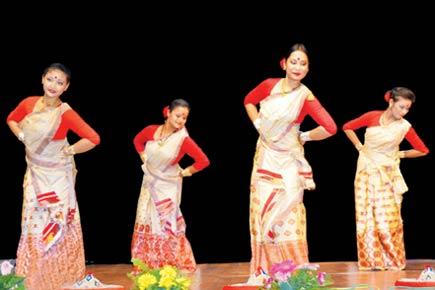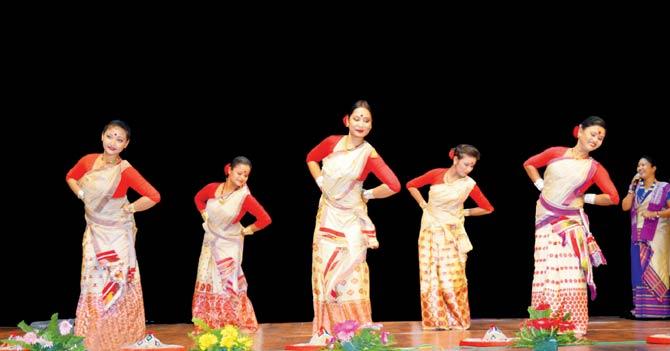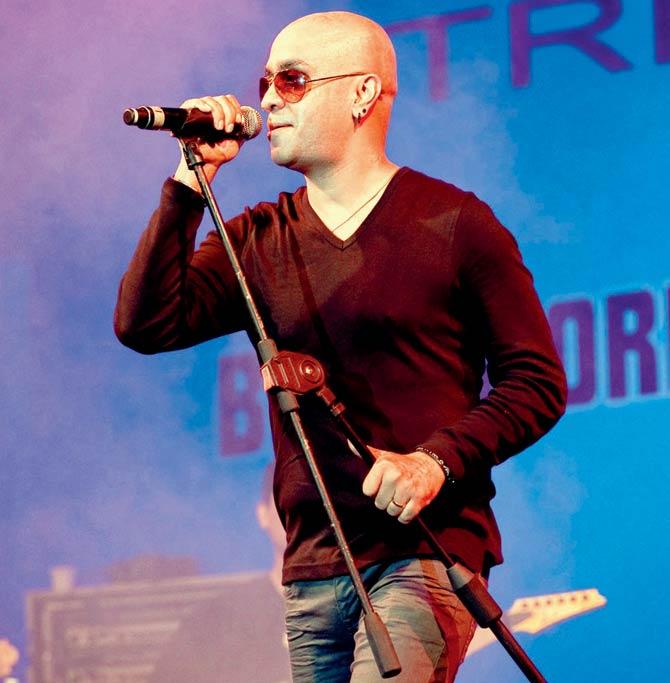Celebrate the culture of the northeastern state through its music and dance


A group of Assamese dancers perform Jhumur, the dance form associated with tea gardens
Asam, known for its picturesque river basins and tea gardens in and around the Brahmaputra Valley, is steeped in the arts with music occupying a special place. The sounds change with every region. There is Jhumur dance (associated with tea gardens), Bihu (the celebrated folk dance and music) and Kamrupi lokgeet (music from the Kamrup district) to name a few. Amid the melodies, there also lies a rich tradition of folk tales and folklore. “I used to listen to a lot of stories from my grandmother, both fictional as well as mythological,” recalls singer Joi Barua, who hails from Jorhat. The 39-year-old didn’t take the Bihu route to come under spotlight. He stuck to his Rock sound, but wrote songs based on those old stories.
ADVERTISEMENT

Singer Joi Barua borrows from traditional folk tales of Assam and incorporates them in his music. Pic/Nimish Jain
Barua, who juggles between working in films (including regional projects) and making independent music, will present a set of stories in the form of music with his band, Joi, at the Living Traditions concert that celebrates the northeastern state.
“We are a Rock band in the World Music space. We try to retell folklore, talk about the history of traditions as well as contemporary history through our songs. I also like to weave music around traditions still in practice,” shares Barua, who composed two songs sketching the antiquity of bareback horse races in Jorhat. The event, more than 100 years old, doesn’t allow jockeys to have a saddle or a stirrup. One of the compositions is Riders Of The Mist. “It talks about the origins of the races and the horses (there are many horses who are brought to the race from across the Brahmaputra River). There is another song on the same subject, called Pitol Soku. In Assamese, Pitol means brass and soku means eyes. It means a jockey with copper eyes. The song has a stadium-like vibe to it,” he explains.
On the other hand, the song Tejimola is about a girl who was tortured and beaten to death by her stepmother. “This is a story written in the early part of the last century. She is buried in the garden and a flower blossoms out of her grave one day. The story celebrates the girl in different forms,” says Barua, who was inspired to make original and independent music after listening to the stalwarts, Khagen Mahanta and Dr Bhupen Hazarika in his early days.
“I have grown up within the tradition of listening to music about the land, the rivers and the culture. My band will be presenting the same kind of music in the contemporary fashion. These songs shaped our state as well as our musical selves,” he reasons.
Barua’s music pays tribute to his homeland and Mumbai — his current work sphere. He has sung tracks like Dusokute (Margarita Withâu00c2u0080u00c2u0088A Straw), Dil Dhadakne Do (Zindagi Na Milegi Dobara) and Kahaniâu00c2u0080u00c2u0088Aankhonâu00c2u0080u00c2u0088Ke Pardon Pe (Udaan) and more.
On: Today and March 19, 6.30 pm
At: NCPA, Nariman Point.
Call: 66223754
Cost: Rs 200 onwards
 Subscribe today by clicking the link and stay updated with the latest news!" Click here!
Subscribe today by clicking the link and stay updated with the latest news!" Click here!







